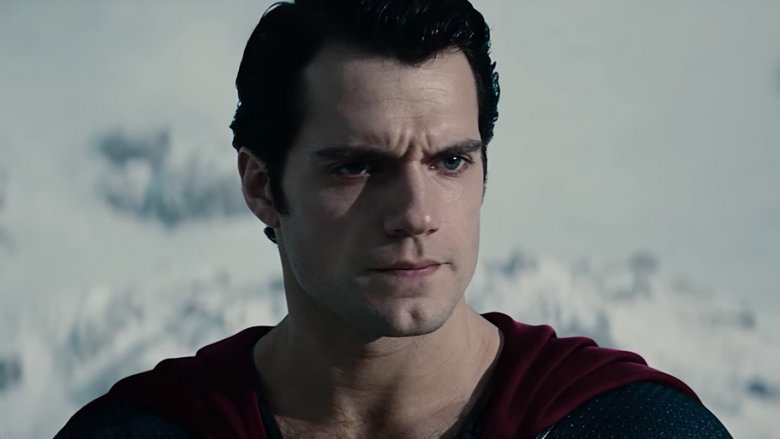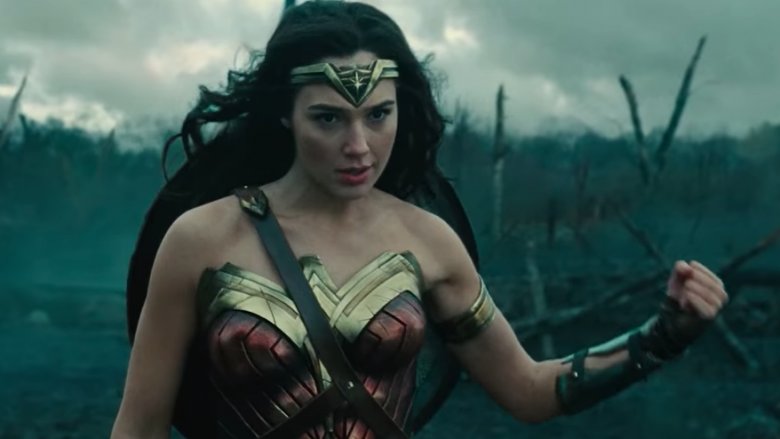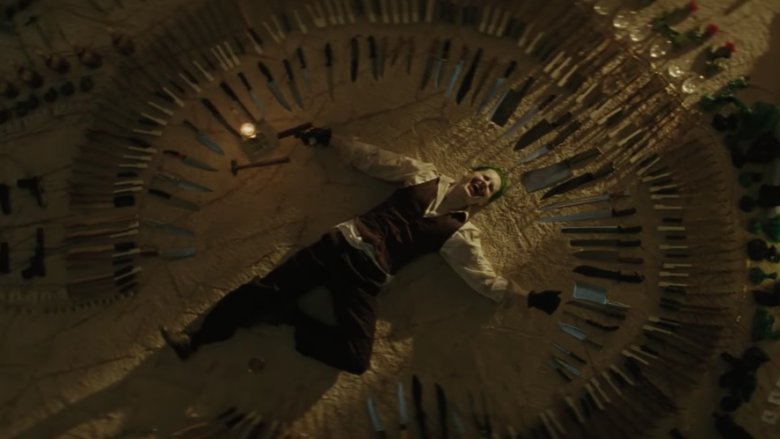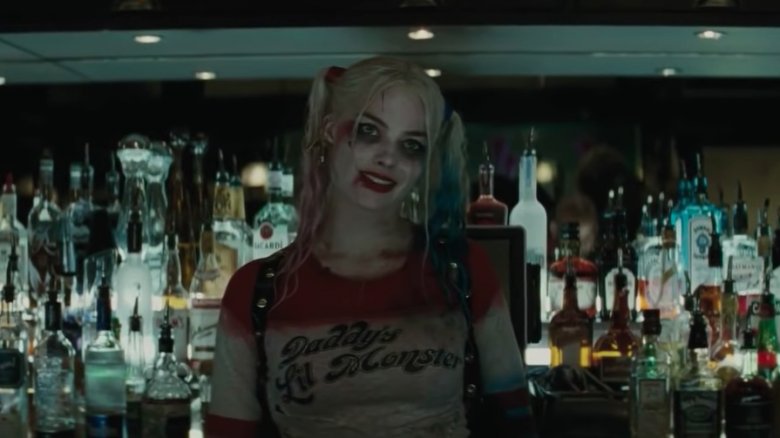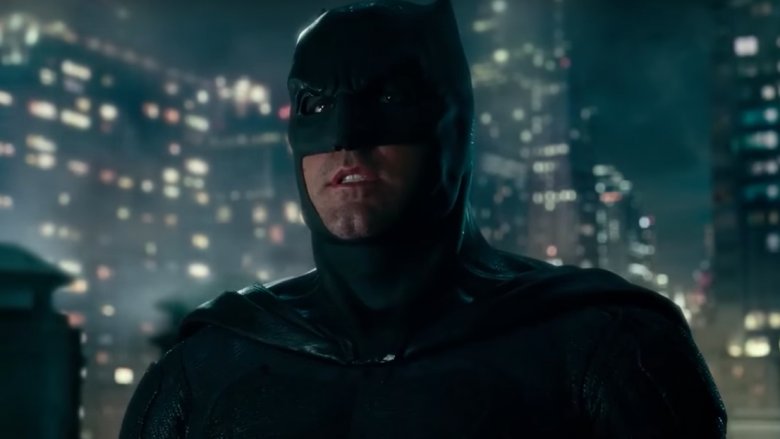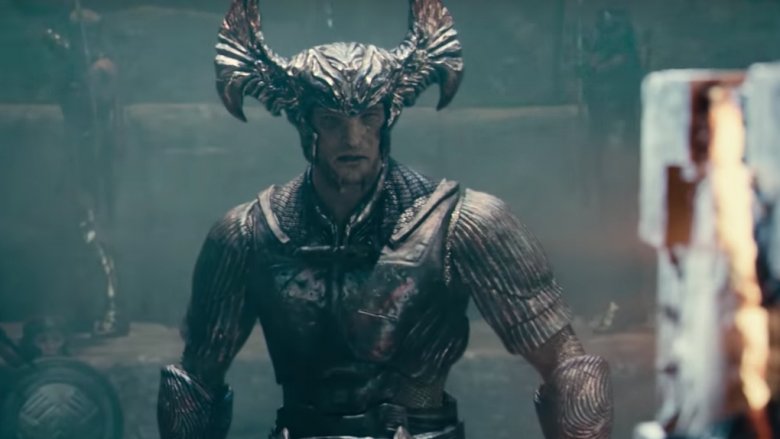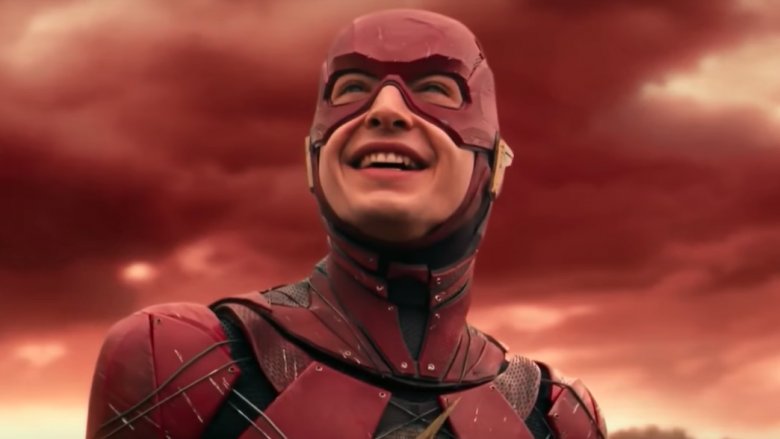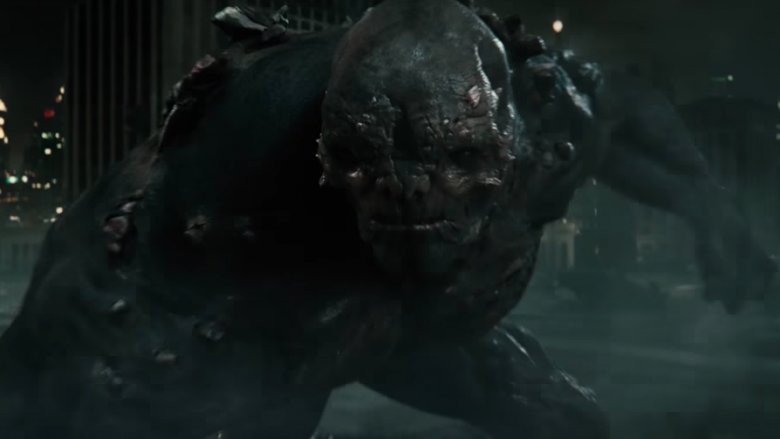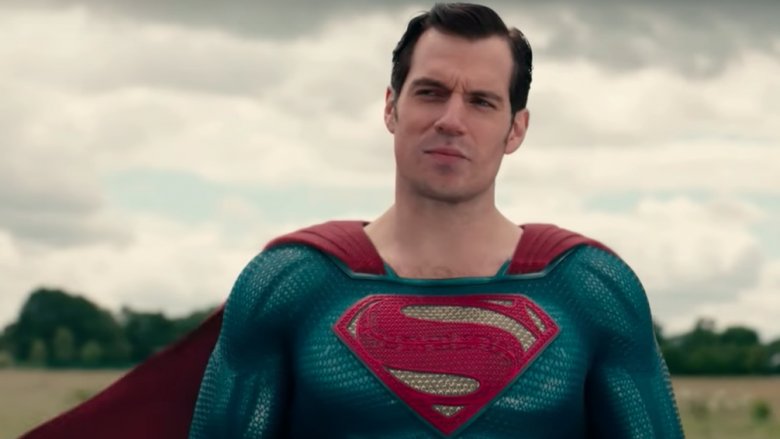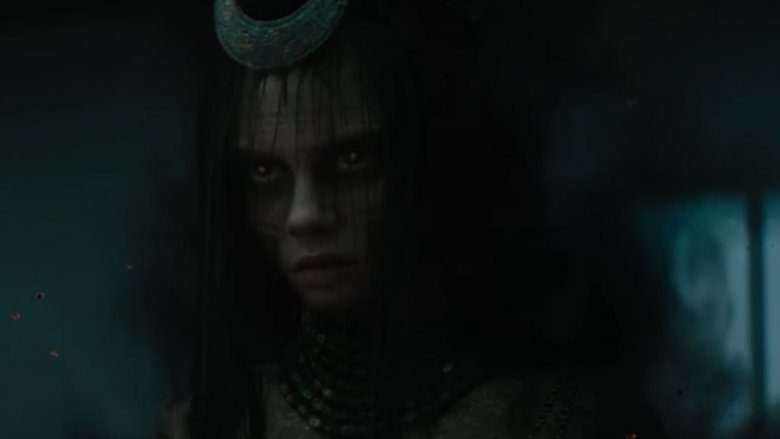5 Best And 5 Worst DCEU Characters
The reception to the DC Extended Universe has been mixed at best, but it's not without its high points. From some great scores to a genuinely masterful superhero origin story in Wonder Woman, there's plenty to keep us interested in the future of this franchise, especially when it comes to the characters themselves. The world of DC Comics is an embarrassment of riches for storytellers, and even if some of these stories have faltered, many of the characters in them have managed to shine in the cinematic universe first established in Man of Steel.
However, there are plenty of characters who haven't done nearly as well in the DCEU. For every great interpretation of one of the most popular superheroes of all time there's a weird, bland, or ill-advised take on a hero or villain that just doesn't work. These are the five best and five worst characters in the DCEU.
Best: Wonder Woman represents the best of what a superhero can be
Even outside her solo film, which is easily the best movie in the DCEU, Gal Gadot's Wonder Woman shines. From her first appearance in Batman v Superman: Dawn of Justice, Diana of Themyscira is perfect. She radiates power and compassion in ways this universe desperately needs. Her debut in the Wonder Woman costume also features one of the more perfect musical cues in the DCEU.
The character's first solo film was a make-or-break moment for the character and the franchise as a whole. After the lukewarm reception to the DCEU's first three installments, Wonder Woman had to be good or risk tanking this cinematic universe for good. Luckily, it's more than good. It's great, largely thanks to Diana's depiction in the film. It adds depth and heart to the character and cements her as one of the great superhero icons of all time. Watching the instant-classic No Man's Land sequence still gives you chills. In that moment, Wonder Woman is everything a superhero should be, both in and out of the DCEU. We can't wait to see what journey the character goes on next.
Worst: The Joker is a poser
Whoever plays the Joker in a post-Heath Ledger world has big shoes to fill. Ledger's performance is as acclaimed as it is influential, a true landmark achievement in superhero cinema. As such, we recognize that no matter what approach was taken when the character returned to the silver screen in Suicide Squad it'd likely be compared somewhat unfavorably to Ledger's performance. That said, Jared Leto's Joker in Suicide Squad is pretty lousy, even removed from Ledger's shadow.
Leto's take on the Joker is all style with zero substance. He sports a bizarre modernized aesthetic complete with tattoos that scream more wannabe rock star than supervillain. This look is then backed up with a whole lot of nothing, playing out like an imitation of Ledger's performance at a Halloween party. It's also difficult to not associate the performance with Leto's needlessly cruel treatment of his fellow cast members for the sake of staying in character, especially when you realize that it was all done for the sake of a glorified cameo. The whole thing makes for a bizarre, hackneyed character, one whose greatest sin isn't his bad tattoos so much as making one of the most distinctive characters in all of comics forgettable for the first time.
Best: Harley Quinn is insane in the best way
There's not much to like about Suicide Squad and we won't pretend otherwise. The bright spots are few and far between thanks to the film's disjointed narrative and tone (likely a product of its troubled production). However, amidst a nonsensical plot and lousy editing, Margot Robbie is absolutely killer as Harley Quinn.
It's a shame that Robbie made her debut as the character in this movie, because in another timeline, this bit of casting is on par with Ryan Reynolds as Deadpool in terms of goofy, idiosyncratic perfection. Robbie's Harley is a spitfire, a shot of adrenaline to a scene in desperate need of one. She's funny, unpredictable, and believably out of her mind, as any respectable Harley performance should be. She also lends a pathos to the character that grounds her emotionally. Sure, Harley is a nutjob, but she's also the victim of a toxic relationship with the Joker, making her lunacy all too recognizably human. Luckily, Warner Bros. execs seem to have caught on to the fact that Robbie's Quinn is lightning in a bottle. She'll be returning to the silver screen in Birds of Prey very soon.
Worst: Lex Luthor went camping in the DCEU
Lex Luthor as a sociopathic millennial isn't an inherently bad idea and Jesse Eisenberg's performance, while campy beyond belief, isn't technically bad. He is, if nothing else, fully committed to the performance and seems to relish chewing through scenery like it's filet mignon. The problem is how out of place the performance feels in the world of the DCEU. Batman v Superman makes an effort to ground its characters in a grim world with realistic consequences. Eisenberg's Luthor is on the opposite end of the spectrum, far more cartoonish a supervillain than the world established by the film allows.
Batman v Superman's Lex is a bona fide sociopath overflowing with nervous, antisocial energy. Even the cadence of his speech is stylized, changing in volume and inflection several times per sentence, loaded with bizarre physical tics to match. In a campier film it'd be right at home. Unfortunately, while Batman v Superman is a lot of things, campy isn't one of them. As such, it feels woefully out of place in the film and only serves to its detriment.
Best: Batman is dark and brooding, as Batman should be
Batman v Superman is one of the most divisive superhero movies of all time. Among the more polarizing aspects of the film is Ben Affleck's performance as Batman, which sees the character interpreted very much in the tone of the DCEU, darker and grittier than we've ever seen him before. While it might not be for everyone, we're inclined to say it's one of the film's saving graces and that Affleck's Batman has become one of the most compelling characters in the DCEU.
Affleck's Batman is a take on the character we've yet to see in any cinematic interpretation of the character. The Batman we meet in Batman v Superman is a humorless, aggressive one-man-war on crime (with an emphasis on the "one man" part — this Batman prefers to fly solo). He's ravaged by loss and more violent than ever, crossing lines the old Bruce Wayne would never dare to even toe. In Superman he initially sees an enemy but comes to see in him an ally. Clark's sacrifice in the battle with Doomsday ultimately rekindles the good in Bruce, inspiring him to branch out and open up to others in Justice League. It's an affecting, compelling arc that feels fresh, with Affleck shining in the role (despite his apparent disinterest in reprising it). The character has been marred by appearing in less than stellar films but make no mistake, Batfleck is one of the standouts of the DCEU.
Worst: Steppenwolf
For better or worse, the DCEU's villains are generally memorable. Be it for heightened camp like Lex Luthor or for the histrionic menace of General Zod, a DCEU antagonist tends to stick around in the minds of viewers. That all went out the window when it mattered the most, though. Steppenwolf is as big a snooze as there can be.
The villain of Justice League, the biggest superhero team-up we've seen in the DCEU yet, should be the biggest, most bombastic threat our heroes have faced yet. Yet Steppenwolf is shockingly bland and mostly forgettable. His motivation is a vaguely defined "take over the world" deal and we never really get to know who he is beyond that. Furthermore his design is bizarrely similar to that of Ares, the villain of Wonder Woman, making him all the more forgettable. Honestly, we'd be okay with him having some bad Joker-style tattoos if only so that he'd stick out a little bit more.
Additionally, Steppenwolf is the DCEU's gateway to introducing the New Gods and the rest of Jack Kirby's Fourth World characters, first teased in Batman v Superman. He captures none of the wonder or menace of those characters or their world, making for a lousy first look at one of the most exciting corners of the world of DC.
Best: The Flash
The DCEU is a relatively humorless place before The Flash makes his proper debut in Justice League. Ezra Miller's take on the fastest man alive deals with that lack of levity in short order, quipping his way through interactions with even the most serious of heroes (Batman. We're talking about Batman). There's an excitable energy to Miller's Barry Allen, one that proves infectious throughout Justice League. The novelty of saving the day has yet to wear off on him. The kid just seems happy to have been included, to be fighting evil alongside the greatest superheroes in the world.
Barry also features prominently into one of the film's best moments. He confesses to Bruce that he doesn't feel equipped to be fighting alongside the League, that he's never "done battle." Bruce calms him down and refocuses him, telling the kid to focus on saving one person. It is, after all, all they really do. It works. Barry proves integral in saving lives and making sure Steppenwolf's forces don't come out ahead in the battle. A troubled pre-production has long stalled the first solo outing for the character but we're more excited than ever after Justice League to see where Barry runs next.
Worst: Doomsday
Context is important in adapting a comic book character or story. A character that works well in a very specific context likely won't work nearly as well in another. Similarly, ripping a beat from one story and sticking it in the middle of a different one risks removing its emotional impact. What we're getting around to saying is that Doomsday's appearance in Batman v Superman is lousy from every conceivable angle.
Reimagining the character as a reincarnated mutant General Zod is a laughable take to begin with. His design is bland beyond belief, hardly distinct among the countless other lumpy grey monsters of cinema. Most importantly, Doomsday doesn't work as a simple third-act villain in this version of Superman's second cinematic effort. Part of what makes the character so compelling in his first comic book appearances is both the sheer amount of time it takes for him to be beaten and the decades upon decades in which Superman had proven himself invincible. Doomsday is an alien wrecking ball and only after mowing through countless other superheroes and Superman himself is he defeated. Sticking him into the final act of a film and having him beat in about 15 minutes robs the character of menace and memorability. It also cheapens the sacrifice Clark makes to bring about his demise. Doomsday's first cinematic appearance should hold some emotional clout. Instead it's hard to feel much of anything at all for it.
Best: Superman
There is no DCEU without its lynchpin character: Superman. Man of Steel launched the DCEU in 2013 and the story and tone introduced in that film have been present in every movie that has come since. The task of playing Clark Kent comes with a burden of high expectations, but Henry Cavill has balanced them admirably since day one.
Cavill's take on Clark, much like Affleck's Batman, is a departure from what we'd expect. His performance accentuates the conflict present in the early days of Superman, portraying him as a man who wants more than anything to do the right thing but is having trouble figuring out both what the right thing is and how to do it properly. This chapter of his career closes when he sacrifices his own life to take out Doomsday in Batman v Superman. Upon resurrection in Justice League we see him become the Superman we've known and loved for decades, a paragon of truth, justice, and all that is good in the world. Cavill excels on both fronts and even in less-than-stellar films has made himself a memorable Superman for his generation.
Worst: Enchantress
At the core of Suicide Squad's multitude of problems is a lack of clarity. From character motivation to the rules of the film's fiction in the DCEU, nothing is clear or consistent. Everything from powers to motivation is in a constant state of flux, creating an unevenness throughout the movie. There's perhaps no character more affected by this than Enchantress.
Played by Cara Delevingne, the character of June Moon is ostensibly supposed to be a tragic villain. Moon is a human, one very much in love with Squad member Rick Flagg, who falls victim to the malicious spirit possessing her known as the Enchantress, the primary antagonist of the film. If it sounds simple, it's not. Enchantress' rise as the film's villain is both confusing and nonsensical. Nothing about the character is established well enough for the audience to feel anything for her. Additionally, the film features not one but two poorly established MacGuffins centered around her. Neither makes much sense and both fail to add any emotional weight to the vacant character despite how much of the film's running time they take up.
Much like Doomsday, Enchantress feels like a walking plot device, only unlike Doomsday you can see onscreen the intense efforts to make her more than that. She is a spectacular failure of clarity and empathy, a microcosm of everything wrong with Suicide Squad.
